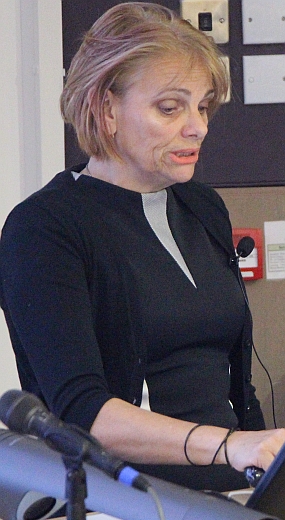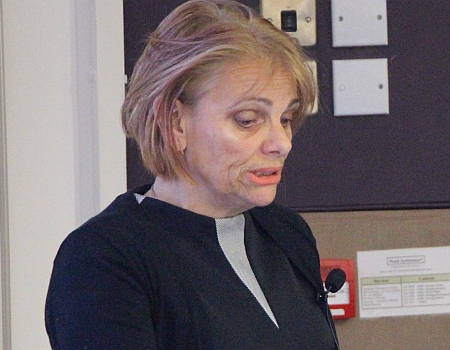

Prof. Jennifer THOMAS
Former IAS Senior Visiting Member
Professor of PhysicsUniversity College London
Period of Appointment: 2019
Prof. Jennifer THOMAS
Former IAS Senior Visiting Member
Professor of PhysicsUniversity College London
Period of Appointment: 2019
Research Areas:
Neutrinos, Photomultiplier Tubes, Cherenkov Detector, Scintillator
Prof. Jennifer Thomas received her BSc in Physics from Bedford College, London in 1981 and her PhD in Particle Physics from University of Oxford in 1983. She joined Imperial College London in 1983 and then became a CERN Fellow in 1985-1989 where she worked on the Time Projection Chamber (TPC) for ALEPH. She was at the Max Planck Institute for Physics in Munich in 1989-1991 and later took up a Staff Scientist position at the Superconducting Super Collider Laboratory in Dallas, Texas. In 1994, she returned to University of Oxford as a Research Officer working on the Main Injector Neutrino Oscillation Search (MINOS) proposed experiment which she brought to the University College London (UCL) in 1997. She is currently a Professor of Physics at UCL and has co-led the MINOS collaboration at Fermilab since 2010.
Prof. Thomas’s research focuses on the MINOS long-baseline neutrino oscillation experiment. This sends a beam of muon neutrinos through the earth from the Fermi National Accelerator Laboratory (FNAL) to the Soudan Iron Mine in Northern Minnesota. The beam is measured at FNAL and at Soudan and differences in the flavor content and energy spectrum are measured. She is also contributing to a new neutrinoless double beta decay experiment called SuperNEMO. Looking for this very rare process is the only way to ascertain whether neutrinos are Dirac particles (their anti-particle is distinct from their particle like all the other fermions) or Majorana particles (the anti-particle and particle are the same).
As a pioneer in the study of neutrinos, Prof. Thomas was awarded a Commander of the Order of the British Empire (CBE) for services to science in 2011. She was also elected a Fellow of the American Physical Society, the UK Institute of Physics and the UK Royal Society. In 2018, she was selected as the recipient of the Michael Faraday Medal and Prize to recognize her leadership of the MINOS experiment.


